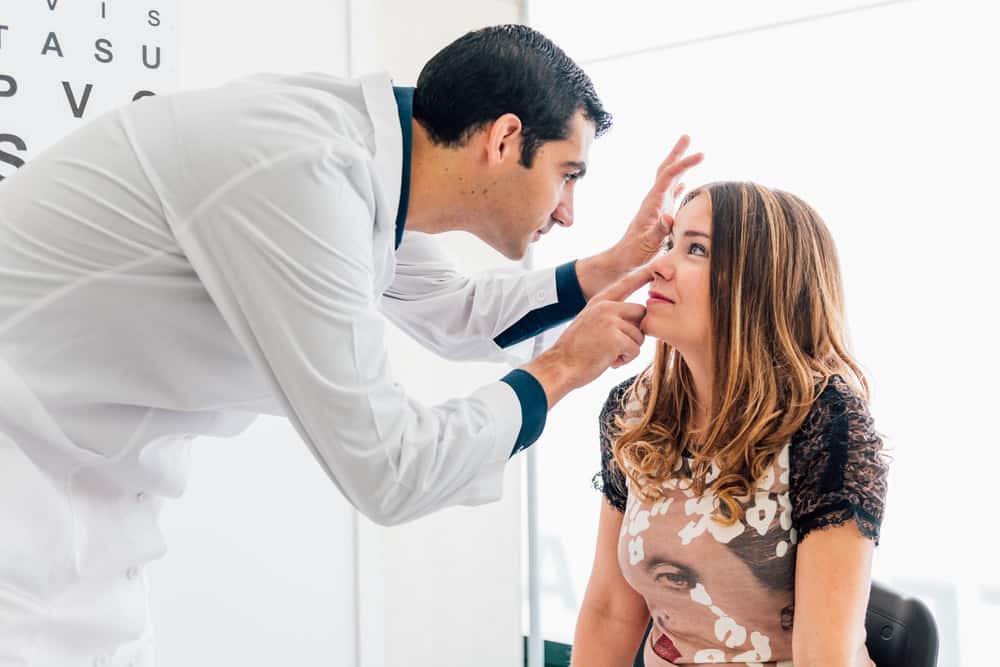Our eyes help us navigate through everyday activities, from driving and extracurriculars to reading and more. Blindness, or even just a change in vision, would change your daily life. Unfortunately, there are countless environmental factors constantly hurting your eyes.
Which Environmental Factors Hurt Your Eyes?
Climate change has caused an increase in harmful factors, putting you at a higher risk of damage today than in previous decades. The ozone layer breakdown allows more UV radiation to reach your eyes, which can lead to many diseases.
Even the particles in the air can harm your eyes. If you have allergies, you know how much pollen can irritate them. Other particles can also cause irritation and damage. Pollution is especially harmful to those who wear contacts because particles may become trapped between the contact and the eye.
Some products you come in contact with daily are too harsh for your eyes. For example, using toxic cleaning supplies may increase your risk of developing eye diseases. Even harsh cosmetics add to these risks. The light from computers can also cause problems.
What Diseases Can You Develop Because of Environmental Factors?

The LED lights from computers lead to digital eye strain. This condition can be as mild as dry eyes or as severe as double vision, light sensitivity, and trouble refocusing.
Cosmetics can easily find their way into your eyes. Many types of makeup consist of carbon black and parabens. Such substances may block the oil glands in your eyes and hinder the ability to form tears, leading to dry eye. Benzalkonium chloride is especially dangerous because it is toxic to the cornea.
Ammonia and bleach in household cleaners can also damage your corneas. If they come in direct contact with your eyes, they can cause chemical burns. Bleach can inflame your conjunctiva and lead to irreversible damage if not cared for properly.
UV radiation alone may cause you to develop a range of ocular diseases. A few are listed below:
- Acute photokeratitis and photo conjunctivitis present as inflamed cornea and conjunctiva, respectively.
- Cataracts occur when your eyes become increasingly cloudy over time, potentially causing blindness.
- A pink growth may appear in the corner of your eye if a disease known as pterygium is present.
- Although it is rare, UV light can cause solar retinopathy, which is irreparable damage to the retina.
- Macular degeneration is another possible disease of the retina, which can cause vision loss if not treated properly. This disease is the leading cause of vision loss or blindness.
- UV radiation can even cause cancer of the cornea and conjunctiva.
- Uveal melanoma is cancer of the iris, ciliary body, or choroid.
The Research
Thus far, scientists have been unable to prove that environmental factors and climate change directly cause macular degeneration, cataracts, and dry eye syndrome. However, a relationship clearly exists, and they are working to find the link.
A study on Taiwanese residents over the age of 50 made significant progress on this front. Scientists placed the residents in groups and exposed them to different amounts of nitrogen dioxide and carbon monoxide, which are harmful particles which negatively affect air quality. The residents who were exposed to the most nitrogen dioxide for the longest period were almost twice as likely to develop age-related macular degeneration. Those exposed to the most carbon monoxide for the longest period were 84% more likely to develop the same disease.
What Can You Do To Protect Your Eyes From Environmental Factors?
Limiting your exposure to environmental factors will aid in protecting your eyes.
Wear sunglasses and hats with rims while outdoors to avoid excess UV radiation. If possible, stay inside when the sun is at its peak or the air quality is poor. During the winter, use artificial tears to keep your eyes from becoming too dry.
At home, use green cleaning supplies and gentler cosmetics. Certain companies specialize in safe products, and you can find them with a bit of research.
If you suffer from digital eye strain, adjust the distance of your computer and increase the contrast on your screen. You can also take breaks, blink regularly, and wear glasses rather than contacts while using your computer. An anti-reflective coating and/or blue blockers can be helpful.
Attending regular eye exams is crucial because your eye doctor can catch problems with your eyes early on. Early intervention often leads to faster and easier recoveries. In some cases, early intervention is the only way to stop a disease before it causes blindness.

Final Thoughts
Art of Optiks has state-of-the-art clinics in Wayzata and Edina, and our talented care team is ready to assist you. If you or your loved one’s eyes have been impacted by environmental factors, we encourage you to contact us today or visit one of our locations.

